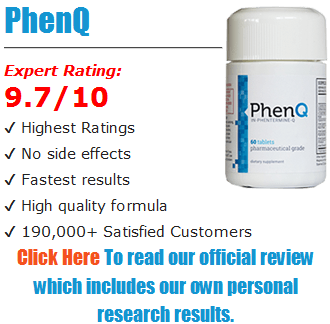How A Physician Answering Service Handles Calls The Right Way
Taking the plunge to hire a physician answering service to handle calls to your practice is a smart move. This encourages efficiency and exceptional customer service in your practice. Since not all answering services are made equal, it pays to understand how to tell that the service is handling your calls correctly. After hiring the best answering service, it pays to understand whether you are getting good value for your money. Here is how to tell you are getting your money’s worth from a physician answering service.
Customized account
The ideal answering service creates customized accounts for customers. These are made after putting the wants and needs of the customers in mind. Designing these accounts happens after the customers are given a detailed questionnaire. This allows the answering service to understand how and what information the customer expects to obtain from their callers. After this consultation, the programming department designs a customized account for your practice.
An experienced service provider with years of experience uses a standard script and account instructions. These make a great starting point to scrutinize and ensure they work for your patients. Perhaps you don’t receive prescription calls. The answering agents won’t have to mention anything about prescriptions. A customized account allows appropriate calls to each the right on-call personnel to protect your practice’s reputation and avoid financial losses and lawsuits.
Appropriate medical knowledge
The ideal answering service should retrieve all necessary information from callers for emergency dispatch. So, get physician answering services with highly trained agents having basic medical knowledge including the use of medical abbreviations. This is very helpful in answering all frequently asked questions that patients might have. Appropriate use of medical abbreviations comes in handy when taking emergency calls to respond quickly to emergency dispatching.
Additionally, the answering service should have agents who understand HIPAA regulations and standards. These require appropriate handling and safeguarding of patient information. The agents should always stay updated with HIPAA updates. This ensures that your practice is HIPAA compliant to avoid fines and lawsuits that cost a lot of money and cause significant reputational damage.
Immediate update of on-call schedule
For a medical practice with an emergency dispatch center, emergency on-call information changes momentarily for physicians. Ensure to hire an answering service with a full in-house programming team working 24/67 to keep all changes up to date. Immediate updates allow all your practice calls to tally with your on-call schedule. This ensures that all processes run smoothly to meet patient expectations in the best way possible.
Well-informed agents
The best physician answering service should have agents updated with any account changes before every shift. This requires handing out a printed memo or sending emails to the agents for referencing. To confirm the acknowledgment of receiving and understanding all updates, the emails are signed by the agents. For account changes that might happen midway a shift, these are emailed right away to the agents for immediate attention.
Equally important is for on-call physicians, office staff, answering agents, and patients to understand all call center procedures. The physician should be aware of how the answering agents are to contact them during after business hours. This allows making adjustments to match their schedules. Patients have to understand acceptable hours to make emergency calls and how to reach the call center. Office staff needs awareness to check non-urgent messages by morning and to make necessary clarifications. It is very important for everyone to understand how they fit into the call answering management process.
Correct caller information
Collecting callers’ information is an important virtue of a medical answering service. After getting the caller’s name, the agent repeats it to ensure that it is correct. This ensures that the physician can return the call with the correct patient name. With this, it becomes easy for a nurse to connect the physician to the appropriate hospital floor. This allows giving patients the appropriate care they need for a great experience.
Equally important is for the answering service to collect the caller’s number. After asking the caller for their number, the agent repeats it to the caller for confirmation to ensure it is the correct one. Obtaining the patient’s return contact information correctly is very important for emergency dispatching. This is also very important for appointment scheduling. It makes it easy to send reminders to avoid appointment no-shows.
Confirming return calls
An answering service should have agents who go the extra mile to confirm that the physician and patient receive callbacks. This requires placing all medical calls on a recall list by the emergency dispatch agents. Afterward, the agents follow up with callers to confirm call returns. For patients who didn’t receive return calls in the specified recall period, the agents dispatch a call out again. This is very important in ensuring that patients get the appropriate care.
Return calls allow giving patients their prescriptions for better patient care. Additionally, callbacks allow confirming appointments to avoid no-shows. Ensuring returning patient calls gives them a positive experience to make them become loyal to your medical practice. Apart from giving your practice positive reviews, happy patients are more likely to recommend your practice to their family and friends.
Perfect monitoring of calls
All agents working for an answering service go through lengthy training. This includes weeks of getting to understand information regarding medical accounts. After completion of this training, the agents take on apprenticeship training with senior call agents to understand the basics of taking caller messages. Then, the agents undergo appropriate training in emergency medical dispatching. With this training, call agents handle all medical calls and dispatches perfectly.
The medical answering service should also have supervisors to monitor all agents for quality assurance and appropriate training purposes continuously. This monitoring is helpful while listening to client lines to lessen the chances of mistakes happening. With this, clients can make suggestions on how the answering service can serve them better.
Availing data
The answering service logs and records all calls for data for use to enhance operations. It also allows checking the effectiveness of the call center. Access to this data offers insight into what happens on your telephone lines. It allows checking whether your patients receive accurate information, checking the appropriate configuration of your account and whether you are getting value for money. It also determines the period when you receive the most calls.
Access to recorded calls allows making appropriate changes that reduce after-hours calls and solutions on how to best manage them. This might include strategies like the call center using a pre-screen message asking non-urgent callers to call back during official business hours. Alternatively, you can work out a solution with the call center to allow taking more messages. This offers extra time for handling other tasks like appointment setting. It might eliminate need for people to call back during business hours.
Bottom line
A physician answering service is an essential aspect of managing a medical practice. However, you have to understand whether the service is giving you value for money. The ideal answering service should offer a customized account with call agents with appropriate medical knowledge and training. Working with the best answering service will allow offering the best patient care and keeping your practice HIPAA compliant.
















